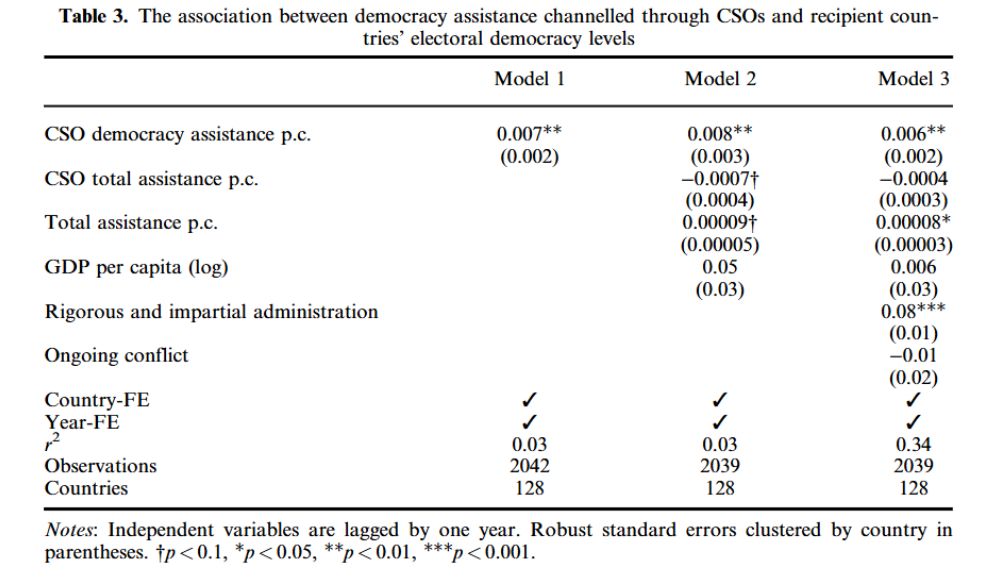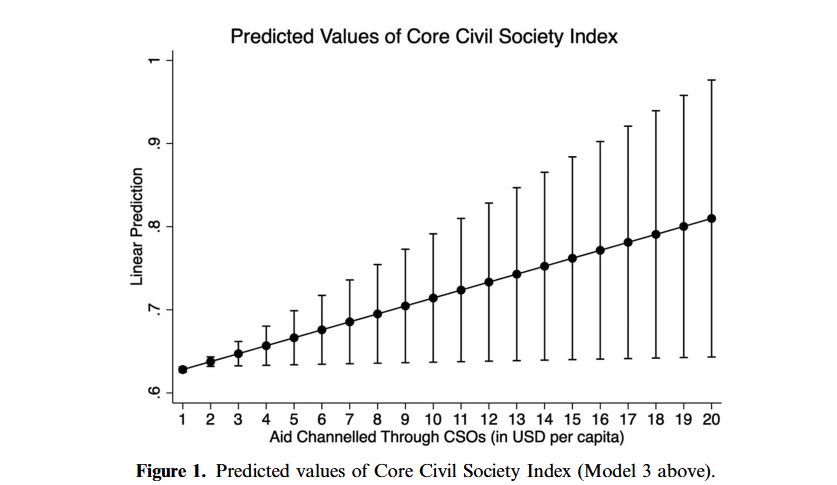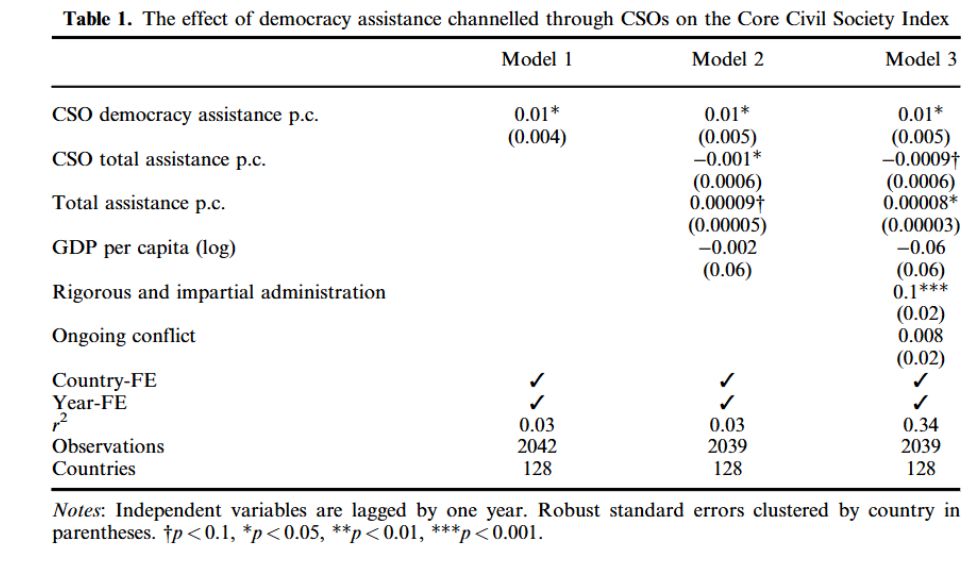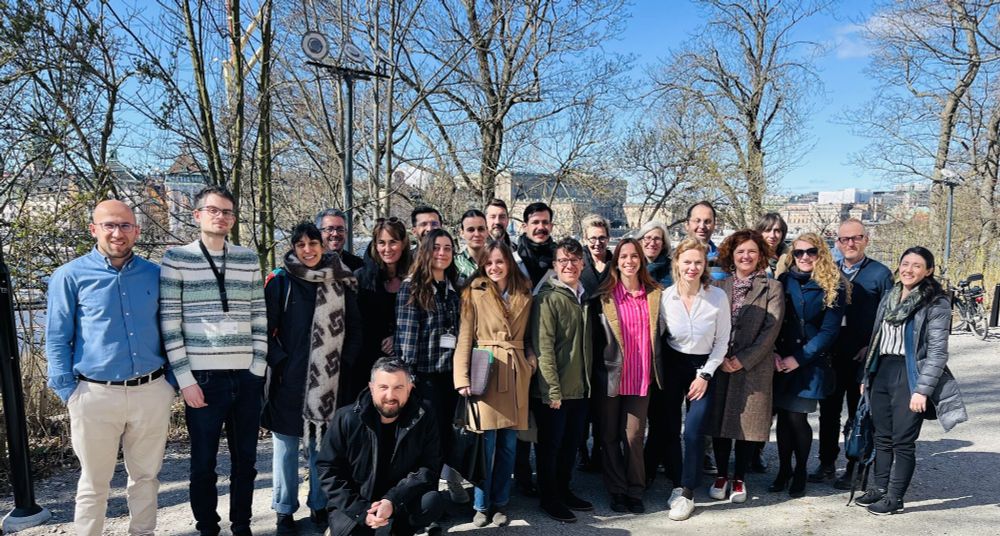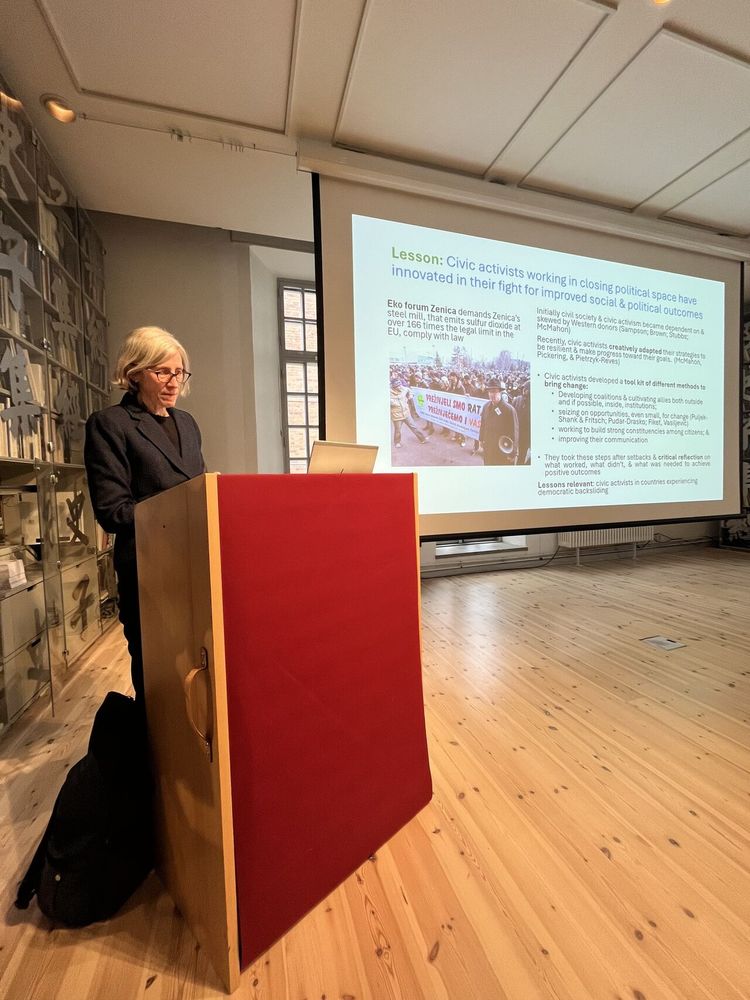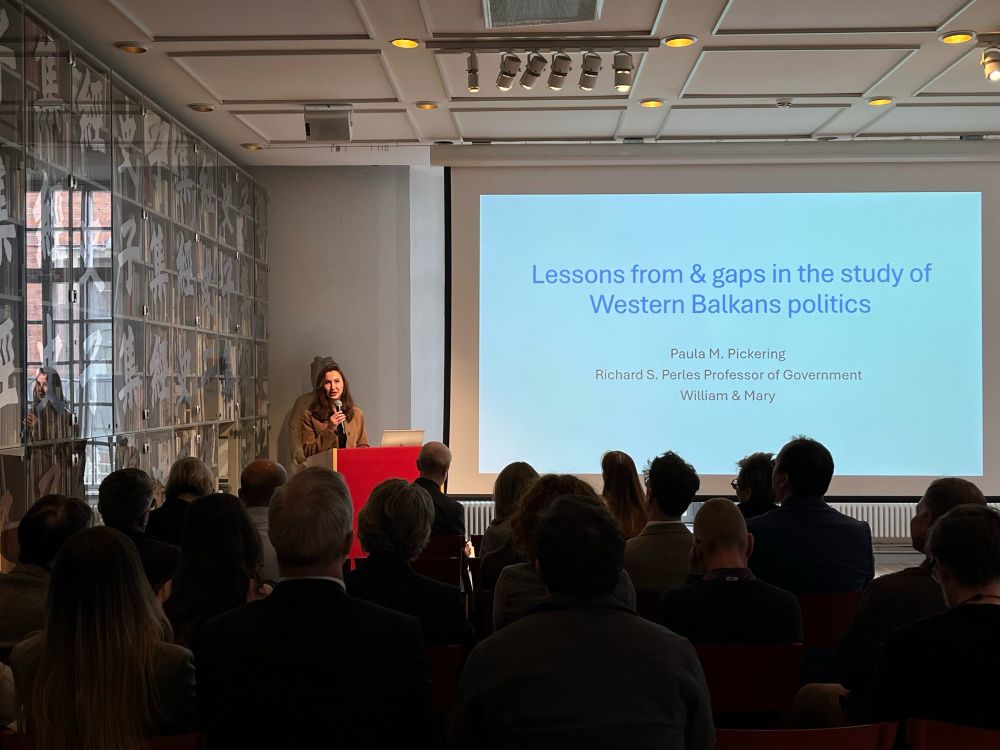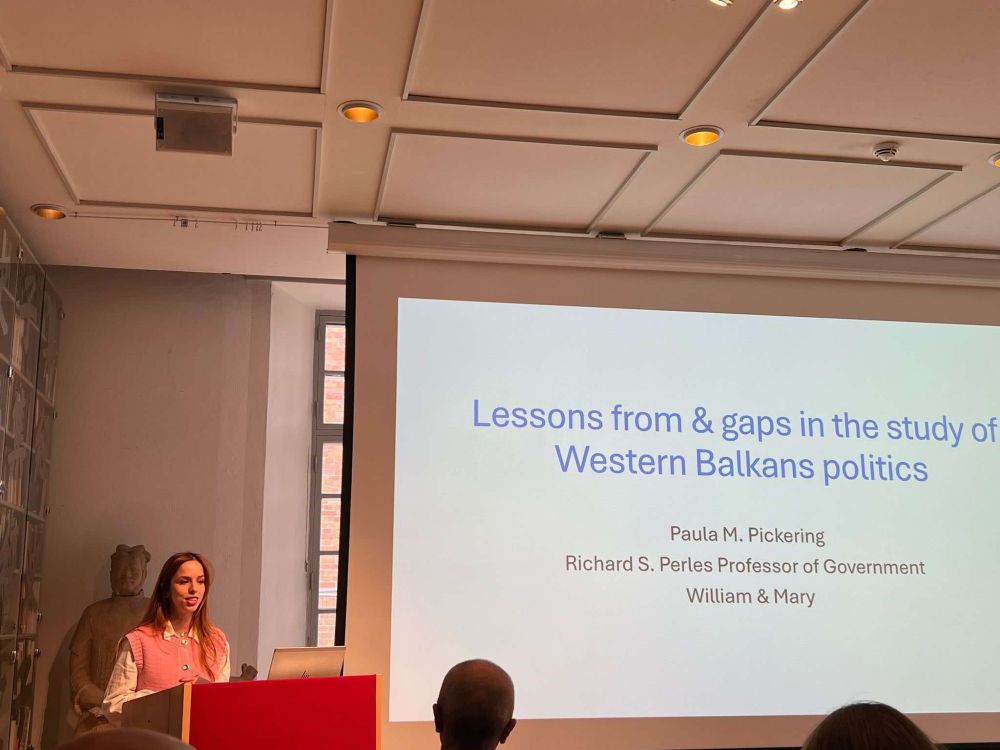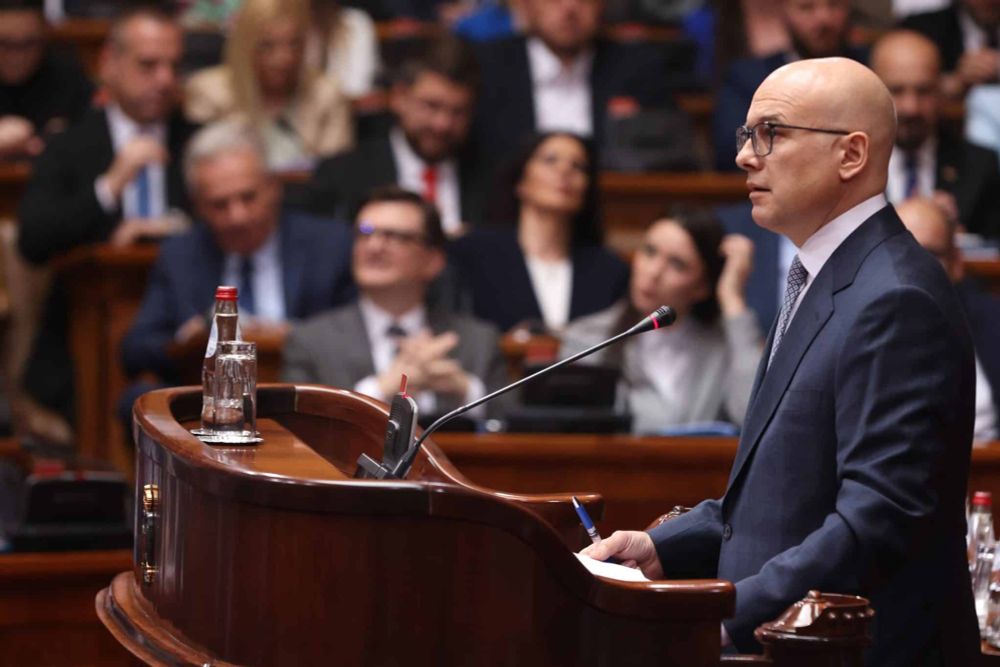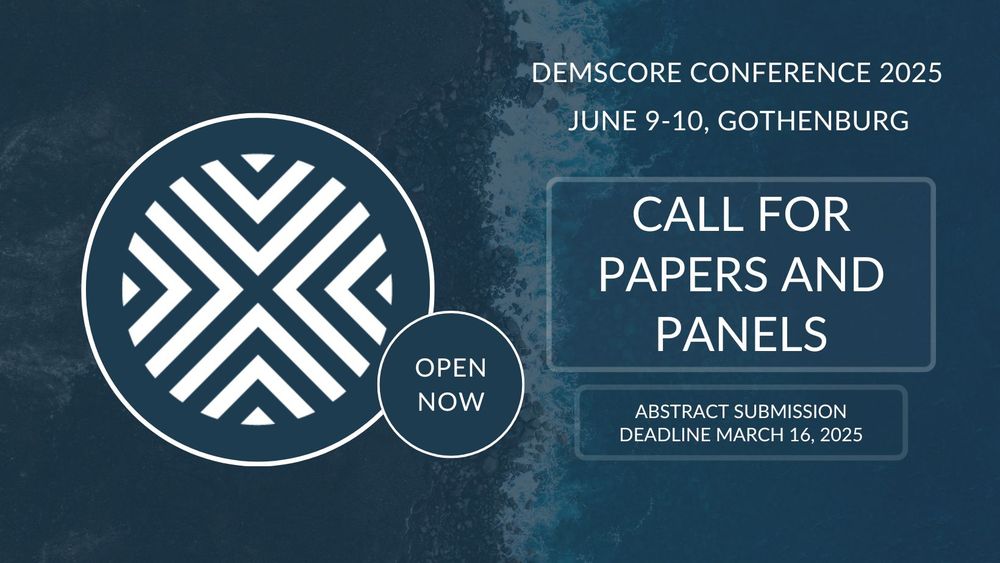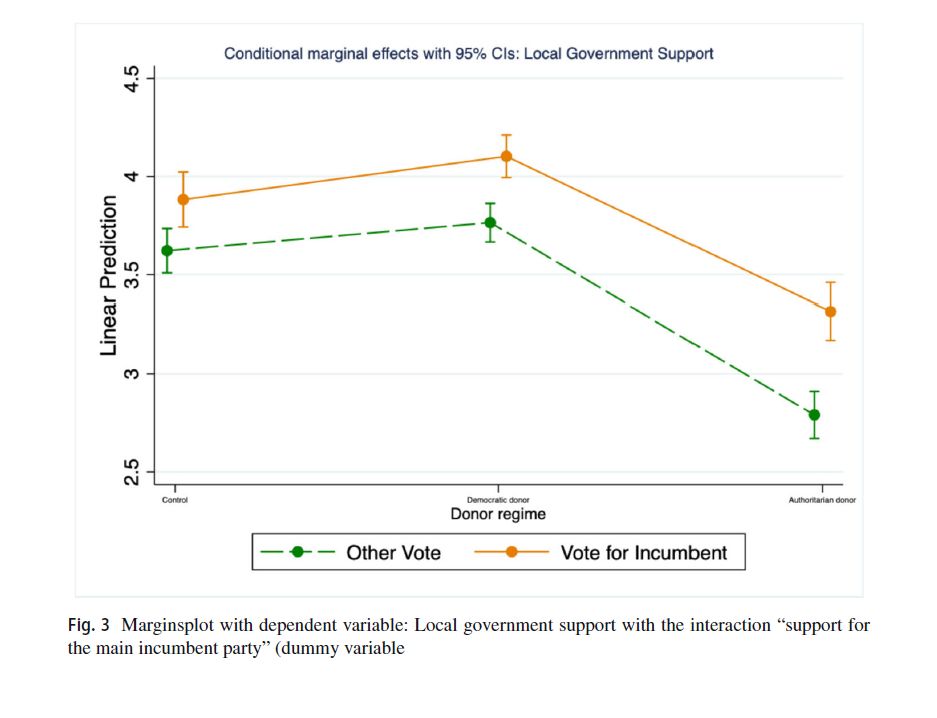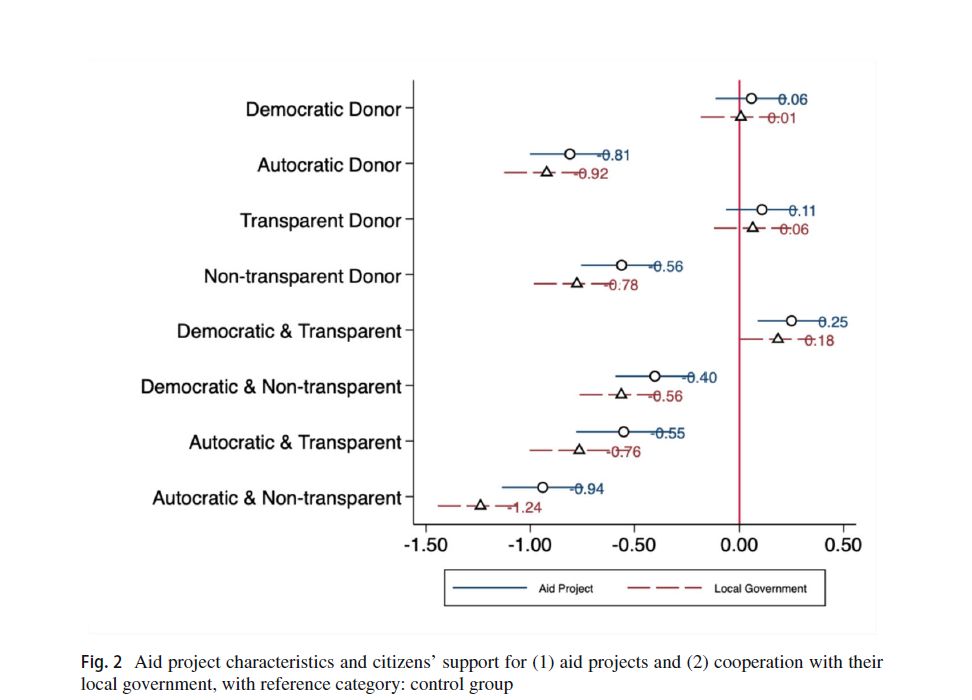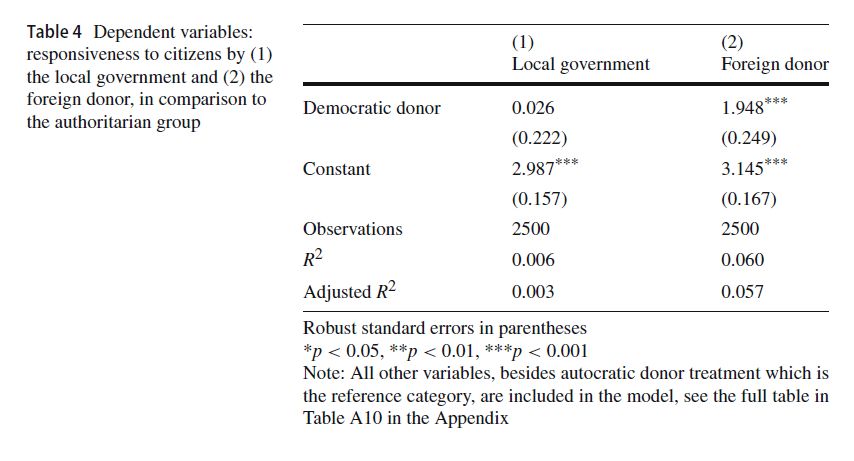Adea Gafuri
@adeagafuri.bsky.social
43 followers
34 following
25 posts
Postdoctoral researcher at @UISweden @goteborgsuni
alumni | democratization, foreign aid, Western Balkans, IOs, experiments
Posts
Media
Videos
Starter Packs
Pinned
Adea Gafuri
@adeagafuri.bsky.social
· Apr 17
Adea Gafuri
@adeagafuri.bsky.social
· Apr 17
Adea Gafuri
@adeagafuri.bsky.social
· Apr 17
Adea Gafuri
@adeagafuri.bsky.social
· Apr 17
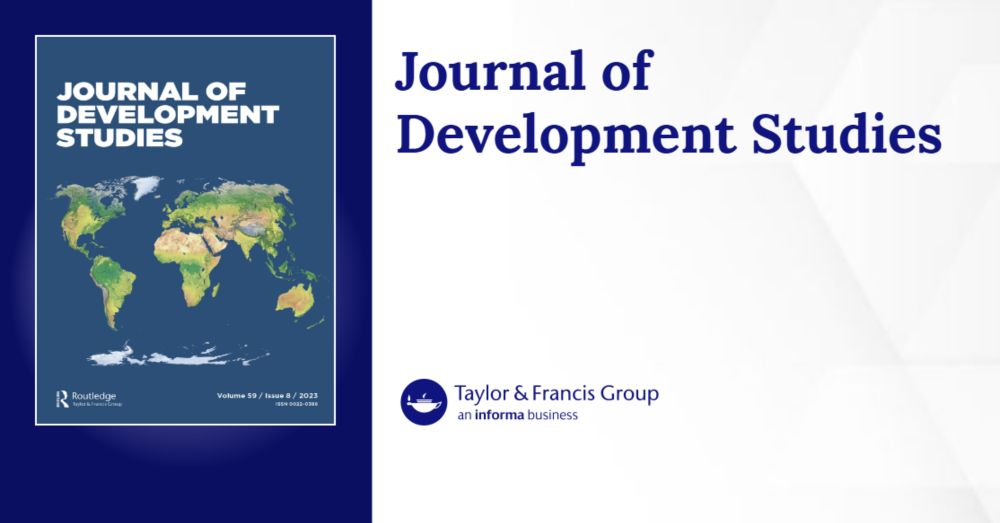
From Aid to Empowerment: The Impact of Democracy Assistance on Civil Society
A growing body of research indicates that democracy aid improves levels of democracy in recipient countries. However, the precise mechanisms behind this relationship are understudied. Contributing ...
www.tandfonline.com
Adea Gafuri
@adeagafuri.bsky.social
· Apr 14
Adea Gafuri
@adeagafuri.bsky.social
· Apr 14
Adea Gafuri
@adeagafuri.bsky.social
· Apr 14
Adea Gafuri
@adeagafuri.bsky.social
· Jan 29
Adea Gafuri
@adeagafuri.bsky.social
· Jan 29
Adea Gafuri
@adeagafuri.bsky.social
· Jan 29
Reposted by Adea Gafuri
Reposted by Adea Gafuri
Reposted by Adea Gafuri
Gefjon Off
@gefjonoff.bsky.social
· Dec 19
Adea Gafuri
@adeagafuri.bsky.social
· Dec 10
Adea Gafuri
@adeagafuri.bsky.social
· Nov 27

